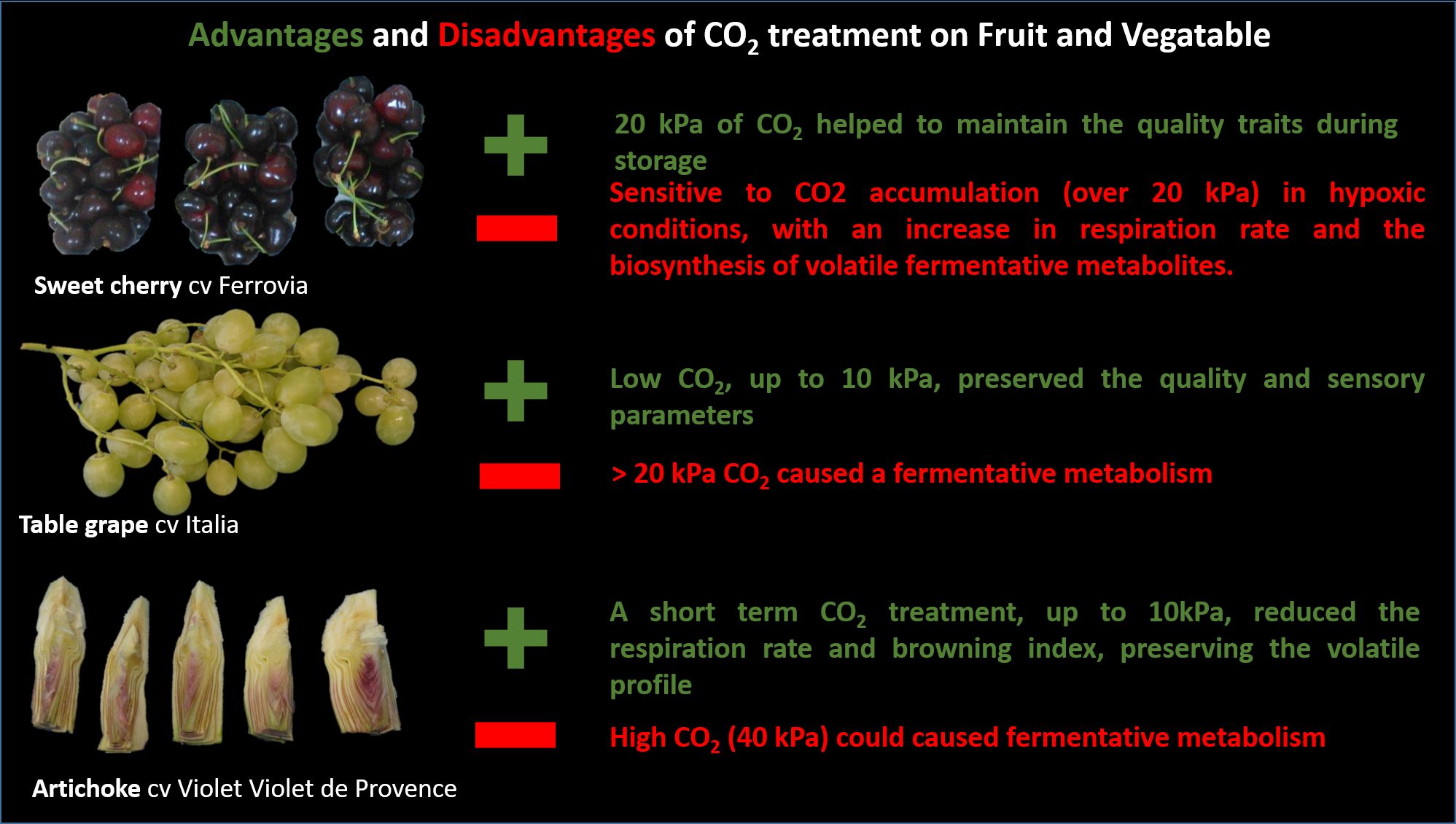CO2 modified atmosphere packaging: stress condition or treatment to preserve fruit and vegetable quality?

Published 2023-01-27
Keywords
- Carbon dioxide,,
- modified atmosphere packaging,
- respiration rate,
- fermentative metabolites,
- short-term treatment
How to Cite
Copyright (c) 2023 Maria Cefola, Imperatrice Capotorto, Vincenzo Lippolis, Salvatore Cervellieri, Anna Damascelli, Rosaria Cozzolino, Beatrice De Giulio, Bernardo Pace

This work is licensed under a Creative Commons Attribution 4.0 International License.
Abstract
In addition to the adoption of proper temperature and relative humidity, the selection of an atmosphere surrounding packaged fresh produce with reduced O2 and/or increased CO2 is one of the most widely used and useful tools to prolong the shelf-life of horticultural crops. However, as O2 and/or CO2 values that might cause injury are strictly related to the commodity, they should be optimized for each product. Here three study cases are reported about the application of modified atmospheres (MA), with different CO2 concentrations (0-40 kPa), to table grapes (cv. Italia) and sweet cherries (cv. Ferrovia) and, as short-term treatment (48 h at 0 °C), to fresh-cut artichokes (cv. Violet de Provence). In each trial, the effect of high CO2 treatment on quality parameters was observed during cold storage. Concerning table grape “Italia”, our results show that low CO2 (up to 10kPa) MA preserved the quality and sensory parameters of the fruit, whereas high CO2 (> 20 kPa) caused a fermentative metabolism. As for sweet cherries 'Ferrovia', 20 kPa CO2 MA helped to maintain the quality traits during storage. On the other hand, this fruit proved to be sensitive to CO2 accumulation (over 20kPa) in hypoxic conditions, since it caused an increase in respiration rate and the biosynthesis of volatile fermentative metabolites. Finally, for fresh-cut artichokes, a short-term CO2 treatment, up to 10kPa, reduced respiration rate and browning index, preserving the volatile profile, while high CO2 (40 kPa) may have caused fermentative metabolism. In conclusion, the application of a MA enriched in CO2 has been shown to have different effects on the quality parameters of the three products, in agreement with the fact that CO2 sensibility depends on each specific fruit or vegetable under study.




